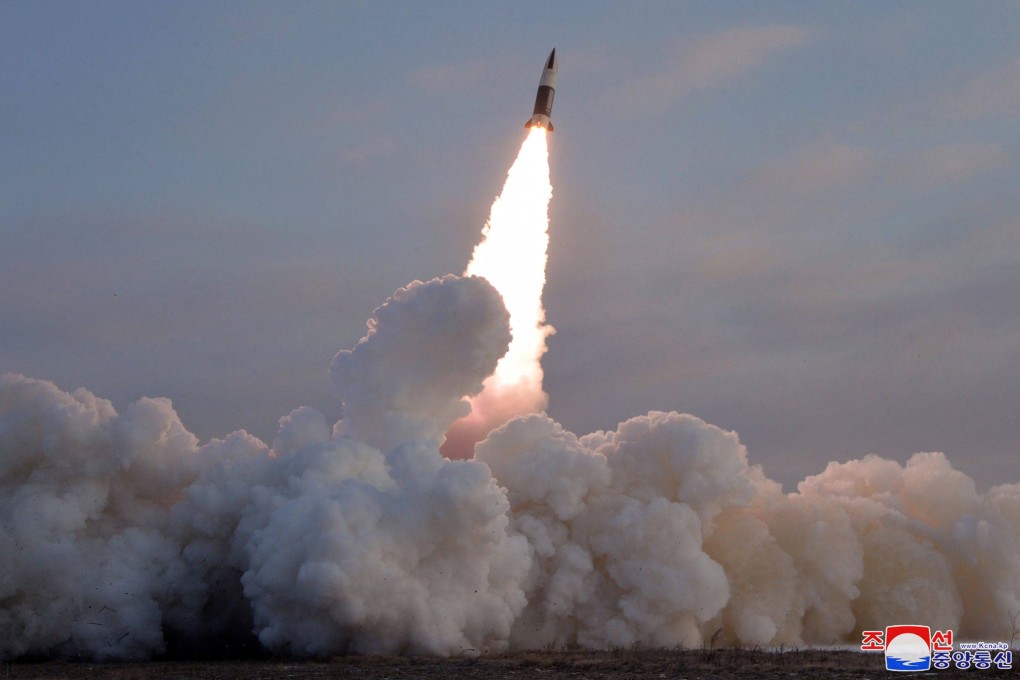Advertisement
North Korea threatens to resume nuclear weapons tests, citing US ‘military threats’
- Leader Kim Jong-un has ordered a rethink of Pyongyang’s self-imposed moratorium on nuke and ICBM tests following new sanctions from Joe Biden administration
- The move also follows tests of what Kim said were hypersonic missiles. With festive anniversaries looming, ICBMs could be a ‘celebratory firecracker’: expert
Reading Time:3 minutes
Why you can trust SCMP
6

North Korea on Thursday threatened to scrap its self-imposed moratorium on testing nuclear weapons and long-range missiles, lashing out at American “military threats” that it said had reached a “danger line”.
Leader Kim Jong-un convened a meeting of the powerful politburo of the ruling Workers’ Party to discuss countermeasures to American hostility, North Korean state media reported.
“The hostile policy and military threats of the United States have reached a danger line that cannot be overlooked any more despite our sincere efforts for maintaining the general tide for the relaxation of tensions,” the KCNA news agency said.
Advertisement
The politburo had ordered a rethink of “trust-building measures that we took on our own initiative” and a re-examination of whether to restart “all temporally-suspended activities”, it said.
The order came after the Joe Biden administration last week announced fresh sanctions on six North Koreans involved in the regime’s weapons of mass destruction and ballistic missile programmes.
Advertisement
It also followed a series of missile tests by North Korea, including two tests of what Pyongyang claimed to be a hypersonic missile.
Advertisement
Select Voice
Select Speed
1.00x